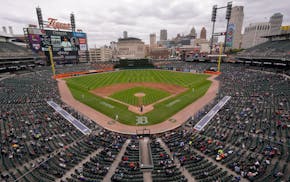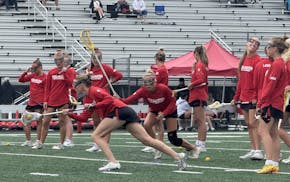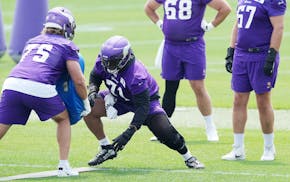MINNESOTA UNITED | ANALYSIS
Emanuel Reynoso provided next to nothing on the field for Minnesota United this year, playing just 30 minutes — and Thursday the club officially announced he'd been sold to Club Tijuana in Liga MX.
He used to be the team's focal point; now he's been gone so much that his manager hasn't even had time to miss him.
"I don't know much different, Reynoso not being here, so it's not been a big thing for me," Eric Ramsay said. "I'm not spending my days longing for Rey to be part of the picture because I have not known it that way."
Though he didn't do much on the field, Reynoso's departure provides something the Loons need off the field: roster flexibility.
The Argentinian's $2.25 million paycheck moving off the books is one thing, but he also occupied two valuable slots on the roster: a designated player slot and an international slot.
The latter is why Minnesota ended up this mess in the first place. The Loons sent him home to Argentina to get his green card, so he'd no longer count as an international player, and it ended up setting the wheels in motion to free up that international slot in an unintended way.
This means Minnesota could effectively bring in a replacement from anywhere, at any salary, and still be in compliance with MLS roster rules. That said, it seems unlikely chief soccer officer Khaled El-Ahmad, so careful and guarded thus far, will suddenly start acting like he's been given unlimited funds.
The league's summer transfer window opens July 18 and closes Aug. 14. If the Loons are going to get a player from elsewhere in MLS, or bring in a player who is under contract with an overseas team, it'll happen during that time.
It's worth remembering, though, that this is not like the trade deadline in other sports, where teams might focus solely on adding a veteran for the stretch drive. Minnesota will be thinking about improving its team for future years, not just for the remainder of 2024. It's like the trade deadline and the offseason Hot Stove League all wrapped into one midsummer free-for-all.
We know Ramsay values both depth and positional flexibility in his team. We also know soccer teams everywhere value youth. So even though the club hasn't revealed its transfer targets, we can make an educated guess about what the Loons might be looking for.
Go down the Loons statistics; flag any outfield player who has played more than 80% of the minutes this season; add a double flag for any player older than 30.
Four players meet that criteria: wingbacks Joseph Rosales and DJ Taylor, center back Michael Boxall, and defensive midfielder Wil Trapp, with the latter two also getting the over-30 double flag.
It's a little bit odd to think this way, because part of the reason those four players have played so much is because they're so important to the team's setup. Boxall, the team captain, has been on the field for every minute, Rosales and Taylor's versatility has enabled the Loons to play with a back five, and Trapp has been the main reason the Loons have found success defending with only two players in central midfield.
That said, Boxall will be 36 in August. Trapp has had to play the full 90 minutes in every game since the Loons switched to playing with two midfielders, despite doing the most running of anyone on a team. And at wingback, there's a reason the Loons are trying to convert Caden Clark — previously an attacking midfielder — into someone who can play outside back on either side of the field.
Ramsay, true to form, isn't thinking yet about who the team might get. "I try to focus on what we've got in front of us here," he said. "For the time being, we've got a really nice group of guys that have got it taken care of."
Minnesota's post-Rey era probably won't be about an exciting, big-money replacement for Reynoso for the rest of 2024. Instead, it will most likely end up being more about who can provide something for the team not only for this year but for 2025 and beyond.

Twins to play on 'Sunday Night Baseball' for first time in nearly five years

Girls lacrosse: Stillwater defeats Park of Cottage Grove on goal with 10 seconds left, reaches state final

